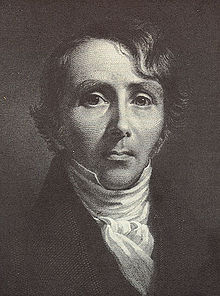Unitarian Universalist Views of God
In earlier times, God was believed to be the unquestioned creator and supreme ruler of the universe. An all-powerful figure, whatever happened, it happened because God made it do so.
Although humankind was created in God’s image, they had no power to change or redesignthat image. God was in command. John Calvin believed in the absolute sovereignty of God. Man could make no contribution to his own salvation. Man was born with ‘original sin,’ the sin of Adam. Further, man could never be certain that he had been 'elected' by God for salvation.
As Mass Bay Colony’s First Church, and nonconformist in practice, there were dissenting views to mainstream ‘Calvinism.’ John Cotton eased this strictness with his emphasis on the Doctrine of Grace and ‘Seal of the Spirit’ [of God]. Also contrary to Calvin was the Arminian concept which held that men were born with the capacity for righteousness as well as sin. After the Revolutionary War, more liberal and indigenous views began to be voiced.
Here is a sampling of that evolution:
God in Definition and as Experience
‘If our natural powers are cultivated and improved to our own attaining an actual likeness to God in knowledge, righteousness and true holiness, we may have now a new nature super-induced, and be said to be new born creatures.’ This is a view, from scripture, of a humanly approachable and benevolent God: The Mystery Hid from Ages and Generations, Charles Chauncy, (1784). Subtitle — The Salvation of All Men; a harbinger of Universalism.
The ‘New England Arminians’ professed that God is a benevolent deity, whose first concern is the happiness of his creatures. found in Institutes of Natural and Revealed Religion. Joseph Priestley, 1774.
‘God is no builder, no architect, no infinite mechanician. From within outwards, not from without inwards is the procession of the Holy Spirit.’ William Ellery Channing, 1830s.
‘God is not an object, but an experience.’ That experience is exemplified in ‘the love we feel, the truth we pursue, the honor we cherish, and the moral beauty we revere,’ all of which flow from eternal principles. Hymns of the Spirit, Samuel Johnson, 1864.
God can be thought of as ‘that Love with which our souls commune; a name or symbol for the aspiring religious sensibility of humanity; an expression of the human personality itself, with religion as a purely human enterprise.’ William Channing Gannett, 1880.
The origin of religion was the primitive ‘expression of man’s awe and wonder in the presence of his own mysterious life. The ‘God-idea’ is a person’s sense of ‘his relation to the universe itself.’ ‘Mystery suggests presence more effectively than a presumed certainty of faith.’ Old and New Unitarian Beliefs, John White Chadwick, 1890.
A modern speculative naturalist wrote, ‘God is the name we give to the creative energy. Let us share the joy of creation by participating with God in the process of making something worthy and beautiful.’ Soul and Body, Frank Oliver Hall, 1900s.
‘Humanity was impoverished if it did not recognize a mode of existence beyond its own.’ Towards Belief in God, Frederick May Eliot, 1920s.
‘God is perfect, but perfection does not consist of changelessness. God’s knowledge surpasses and includes our own. The idea of God is one of religious value as well as philosophical consistency.’ Divine Relativity, Charles Hartshorne, 1920s.
God is ‘all reality in which we live and move and have our being.’ The Art of Staying Sane, Joseph Barth, 1954.
“‘God’ may be appropriately used as a name for some natural processes within the universe, such as love or creative evolution.” Answered in the affirmative by 43% of the respondents in a Unitarian Universalist 1963 poll.

Channing’s Last Word
‘That unbounded spiritual energy which we call God, is conceived by us only through consciousness, through the knowledge of ourselves...The Infinite Light would be for ever hidden from us, did not kindred rays dawn and brighten within us. God is another name for human intelligence raised above all error and imperfection, and extended to all possible truth. The same is true of God’s goodness. How do we understand this, but by the principle of love implanted in the human breast? Humankind, as by a natural inspiration, have agreed to speak of conscience as the voice of God, as the Divinity within us... The universe, I know, is full of God.’
Sources and further reading: Browning (1996), P Richardson (2003), Robinson (1985), Wilbur (1953).